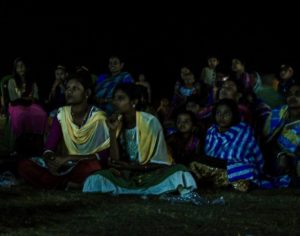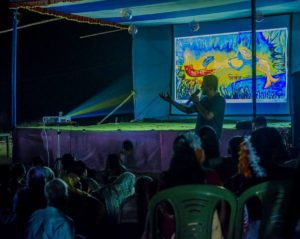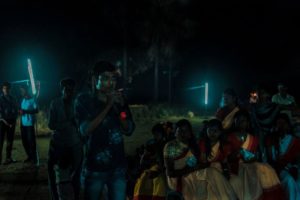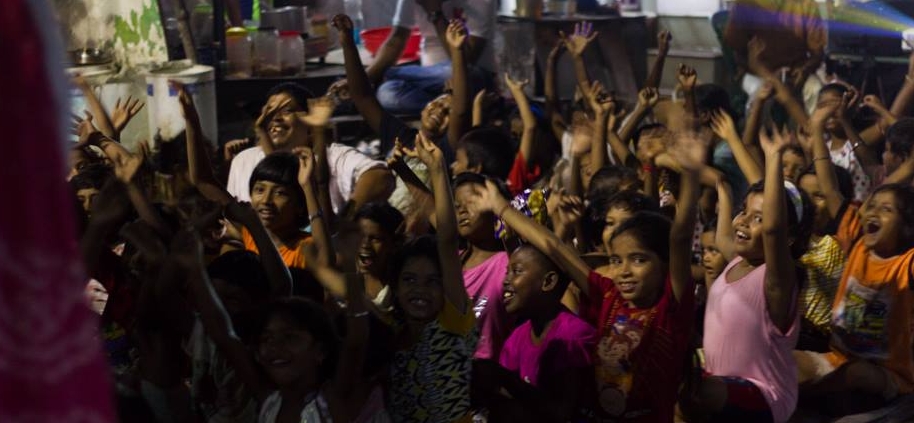Little Cinema at Sundarpur
Little Cinema was back in Sundarpur village, Khanakul on 4 March 2018, for the second time after a successful screening last year. Hundred odd residents gathered in the growing dusk in front of a makeshift stage decorated with balloons. Families, young mothers with their babies, grandmothers, college goers standing next to their motorbikes and youngsters armed with papad in plastic packets.
Last year, some of the children had written to us—drawings and letters—which Subhasish da showed before starting the screenings. Priti Mondol, who was sitting right in front, saw her artwork on the big screen. What a feeling that must have been!

We started with Neighbours, a film by Norman Mclaren. Throughout the screening there were whispers amongst the audience. What will happen next? What will the two men do? A lady in the audience commented after the screening that fights between neighbours can only lead to unhappiness, like in the film, where everything was lost at the end. Subhasish da spoke about ‘fights’ that occur between countries, namely India and Pakistan. How much of that is manufactured by politicians as a distraction from issues that crop up within the countries? It is vitally important to begin to think critically about these issues.

The next film was Two and Two by Babak Anvari. This film shows how a higher authority, represented by a teacher and the school principal, insist that two and two makes five, not four: a way of propagating falsehoods through a position of power. Very often, it is people in rural India who have to face the brunt of decisions taken by the ‘experts’ from the city—decisions that are taken without consideration for both the people themselves and the spaces that they inhabit. Is accepting what is wrong, right? How does one speak up against what is false and wrong? Where does one find the courage of conviction?
After the screening, Amarjit, a college student, spoke strongly against simply accepting what people in the so-called position of power say. The conviction in the young man’s voice was wonderful to experience.

The last film of the day was Kaphal, directed by Batul Mukhtiar. This film, in which the child artistes are actually from the area itself shows childish innocence in a space where superstition and caste discrimination is prevalent. The use of humour and highly relatable situations makes this a film that can be viewed by both the young and the not so young. It also opens up a whole new avenue for discussion on bias, understanding difference and how, we as adults are the ones responsible for this creation of difference.
Report: Paroma Sengupta.
Photography: Aniruddha Dey.



